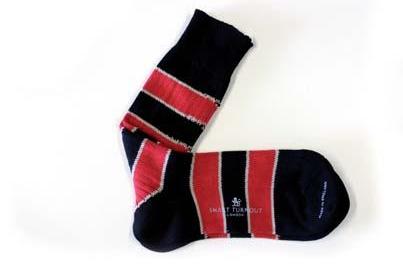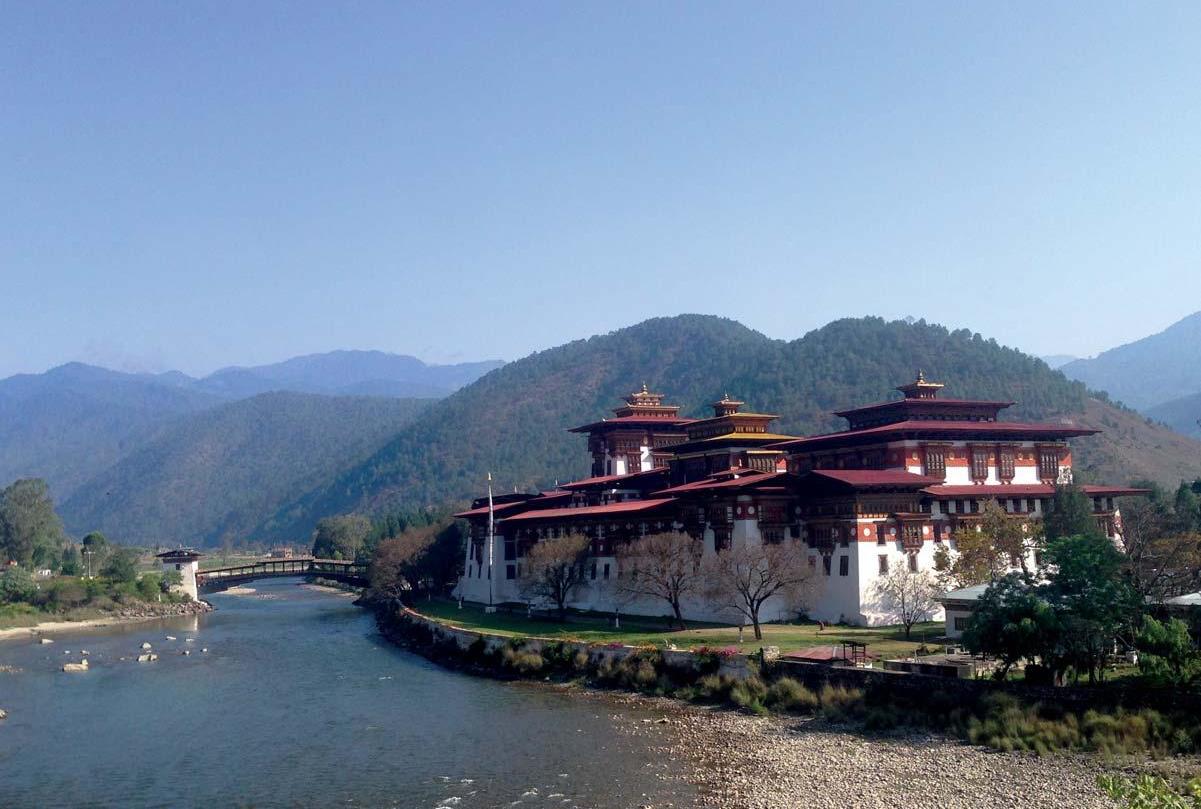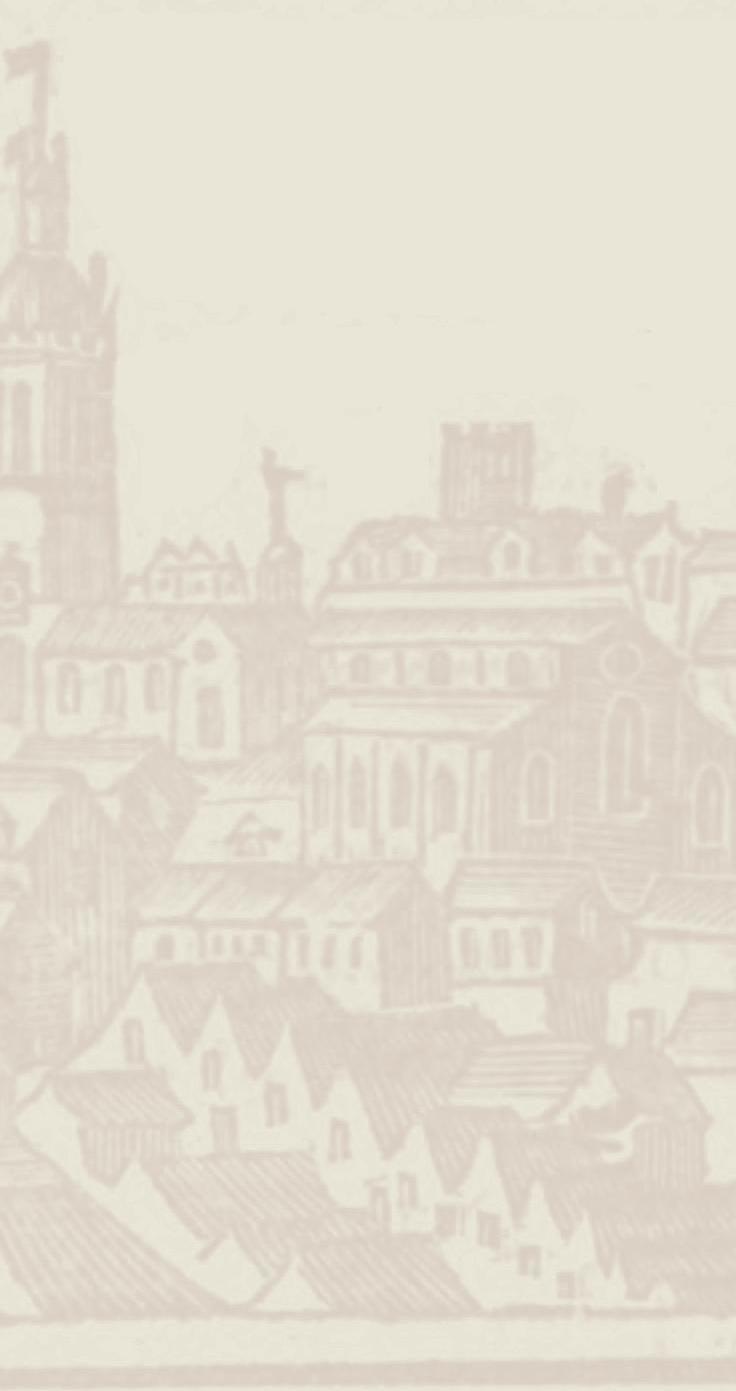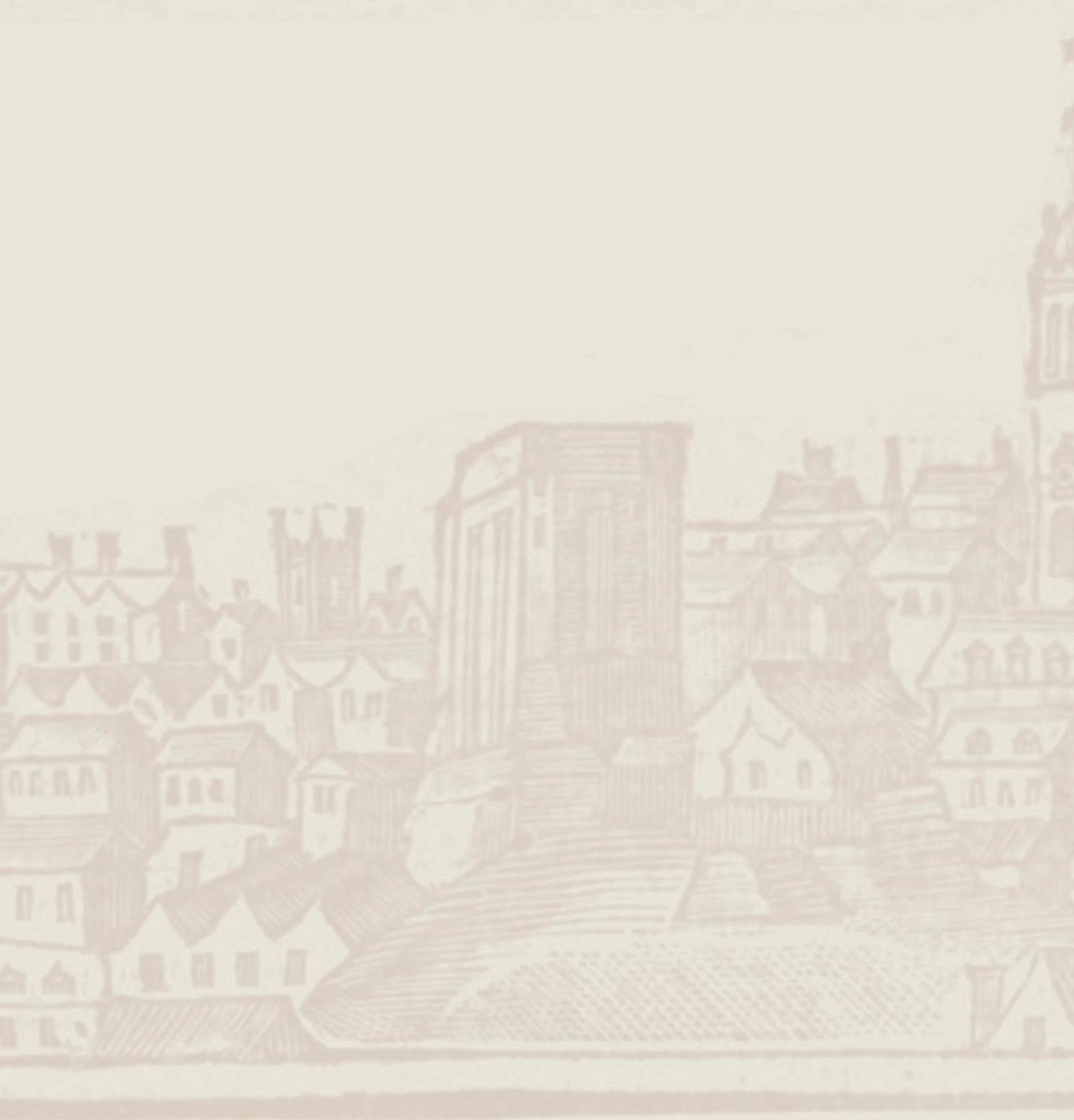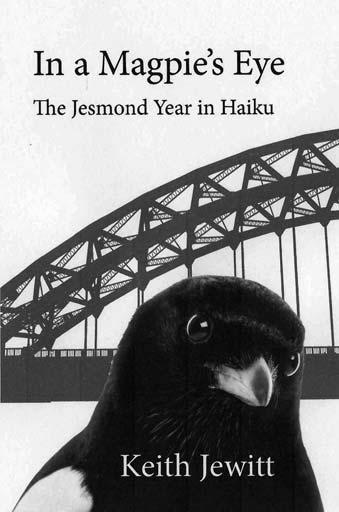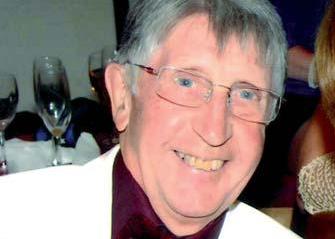
22 minute read
Obituaries
from ONA 101
William ‘Bill’ Alistair Shannon (48-54)
Born 25 July 1937, died 2 February 2017, aged 79
Advertisement
My father never forgot his school days, entering Class II.2 at RGS in 1948. Despite having joined the school through a Scholarship, he always delighted in telling my brother Ian and I of his academic inadequacies, as he saw them. His favourite story of a Math’s report, went something like this: “Subject – Maths; number in class – 31; position in class – 31; report –weak”!
He loved to tell that tale perhaps as he went on to be a Fellow of both the Chartered Insurance Institute (FCII) and the Chartered Institute of Loss Adjusters (FCILA) where he would demonstrate considerable skill and success as a chartered loss adjuster culminating in a specialism for fish farm claims. His career began in Newcastle with Iron Trades, then to JP Smith and Co. and after what he saw as the close shave of joining a firm in London, was subsequently invited to develop his talents in the North East with Graham Miller & Co. where he spent much more time at home with his wife, Jenny.
Having said that, it wasn’t long afterwards that he admitted asking his much-revered boss Tom Fairnington why the company didn’t have any presence in Scotland, to which he was promptly asked to go and open an office there in 1971. Although dreaming of new surroundings in Edinburgh, he was quickly told that he would be opening an office in Glasgow – whilst Edinburgh was the capital, Glasgow in those days had ‘the capital’, was the explanation. Having persuaded my mother with two young boys that a move to Glasgow wasn’t to be feared and that it should only be for two years or so, he ended up staying in Scotland, successfully growing offices in Glasgow and then Edinburgh, where he finally settled after retiring.
Whilst my father’s heart always rested in the North East of England, he did become an adopted Scot and I think that it was largely because of his sharp wit and love of people that he was to have such success in both his business and social life. His defining (if not apocryphal) story at starting life in Scotland was of visiting a housewife in a Glasgow tenement to deal with a claim and being greeted with, “Yer nae Scottish”. “No, I’m a Geordie”, he replied. “Och, that’s awreet then, I thought you were English!”
My father’s family and friends can thank RGS for teaching him to play the clarinet. He played with ‘The Bill Shannon Quintet’ as a young man, but continued bursting out Acker Bilk at gatherings whenever he had the chance. In retirement years, he would be a regular player on the Bo’ness Santa Steam Trains at Christmastime, although recounting that the dozens of tunes he had to play quite wore him out.
Activities from his schooldays were carried on long after leaving. He spent time assisting at some of the the annual camps, notably that in Wensleydale, which was led by Laurence ‘Larry’ Watson (30-71), one of the great characters from the staff.
My father was immensely proud of the RGS, and maintained contacts with many Old Novos including Trevor Rees (48-55) who has provided some of the detail for this note. After his move to the west of Scotland he made contact with those who had gravitated to the same area and organised a meeting in Glasgow around 1979. Amazingly, half-a-dozen individuals from Class II.2 of 1948 attended. He was then to the fore in organising a Scottish branch of the Old Novos which ran for several years subsequently.
Although retired from insurance loss adjusting, he did not opt for a quiet life. He was involved with a wide range of charities and interests including The Scottish Railway Preservation Society, The Bo’ness and Kinneil Railway, Water of Leith Conservation Trust, Seagull Trust, Probus Clubs, Association of Speakers Clubs and the Community Council. My mother quipped that she only knew what he was doing each day by the uniform or tie he was wearing on his way out.
Whilst he had lived with heart disease for some time and despite having gone through some wonderful, if not testing treatment and surgery over the years, he remained strong and sharp, pushing on right to the end; the way we know he wanted to. His enthusiasm for life and the energy he derived from being around other people were demonstrated by the standing room only attendance at his funeral taken by his close Newcastle friend of 60 years, Malcolm Kennedy.
Being meticulous and a great organiser, he has left his wife Jenny, sons David and Ian and family with clear instructions on the event of his death and we are grateful that he has done so with such love, generosity, order and of course his unshakeable good humour. We will miss him dearly, but our lives have been shaped and blessed because of the person he was.
By David J Shannon
Michael ‘Mike’ John Rennie (54-64)
Born July 28 1946, died 9 January 2017, aged 70

Sad to report, Professor Mike Rennie died suddenly in his sleep in January, although he had not been well for some time.
A Scholarship boy from Longbenton, Newcastle, Mike joined the RGS in the Junior School in 1954, and its huge influence on his life in succeeding years he was very happy to acknowledge, stimulating as it did his voracious appetite for learning in many fields. In the Sixth Form he loved exchanging ideas with the teaching staff, in particular, head of English (MG Robinson (34-72) and the head of Biology (G Pallister (26-66). In recent years Mike would meet up with fellow members of the ‘Medical Sixth’ of his era (see Issues 92 and 98), Tony Book (54-64), David Franks (54-65) and Doug Trotter (54-64), for what he would describe as, “Lively weekends”.
At school in the 60s Mike was an easily recognisable figure in his wellcut mod grey suit. Outside the classroom he swam for the school team for many years and achieved distinction by swimming for the North East of England; on the other hand his outings in House rugby were characterised by an unskilled enthusiasm, where he delighted in using his considerable frame to take on the challenge of 1st XV opponents.
Mike’s first degree was in Biological Chemistry/Zoology at Hull (1968), followed by an MSc in Neurochemistry at Manchester (1970), and a PhD at Glasgow University (1973). He completed his Post Doctorate at St. Louis, Missouri from 1973-1977 and following that, worked as senior lecturer at University College London. In 1983 Mike was appointed Professor of Physiology at Dundee University and he was made a Fellow of the Royal Society of Edinburgh. Mike’s overriding interest was in skeletal muscle, its response to exercise, and the regulation of its protein content in ageing, health and disease, and his published work was recognised as being influential throughout his career.
Dundee vice-chancellor Professor Sir Pete Downes said of him, “He was a passionate advocate of physiological research who could be highly critical of weak science, but he was also an unstinting and loyal supporter of all those who benefited from working with him. Mike taught me much about academic leadership early in my career. He put human physiology research at Dundee on the international map with his pioneering work.”
Apart from his academic achievements, Mike was frighteningly well-read in the literature of many countries and pursued his interests in jazz and films just as avidly. He was, it has to be said, a man of decided opinions, larger than life, never dull, not given to compromise, but a generous friend. Wherever Mike lived and worked, and he travelled extensively, he was the life and soul of any party.
Mike’s wife Anne said of her husband, “There seemed to be little that he didn’t know. My kids called him “Google”. He was impossible to play any kind of general knowledge game with as he always won. And there can’t be many Munroes he hadn’t climbed, DIY projects he didn’t undertake. He lived life to the full”.
He felt indebted to RGS and would talk with affection of his contemporaries. Little did they know that he researched their subsequent careers, informing me on one occasion that at least three of ‘Birdman’ Robinson’s A Level English set had had novels published (Tony Boullemier (57-64), Nic Cohn (60-63), the late Paul Torday (54-64).
Mike forged lifelong friendships with Graeme McLagan (51-61) and Malcolm ‘Tab’ Staig (51-61) and we met up in Bath to drink a few glasses to his memory. It was not a solemn occasion. Mike’s life was worth a celebration.
He leaves his wife Anne, his daughters Louise and Eleanor, his son Andrew, and five grandchildren.
By George Hogg (57-64)
Brian Heppell (48-56)
Born 11 May 1937, died 14 April 2017, aged 79
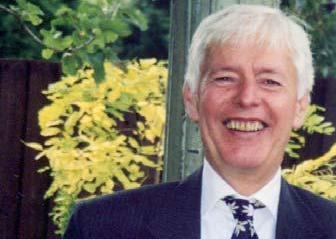
I first met Brian Heppell when we both started at the RGS in 1948, but as he had been placed in the brainy II.1 set, while I languished in II.2, we did not immediately become friends. However, our sets converged later, and a friendship developed which lasted until his death on the 14 April this year.
He had won a Scholarship to attend the RGS. In his early years in the school he was a boisterous and amiable presence, but settled to a mature and much-liked role. He was respected by his teachers, and always had time to listen sympathetically to younger boys; it was clear to me even then that Brian was a born teacher himself.
He was awarded a coveted State Scholarship, which went far to paying his way through Cambridge. In the meantime he was among the last young men to do two years National Service, in his case, in the RAF.
In 1958 he went up to Downing College, Cambridge, and gained a BA in Geography. Cambridge was a good time for him. He took part in organised activities, like the college choir (Brian had a fine baritone), and its 2nd XI, which he captained. But informal activities were equally important; for instance, he developed an unsuspected skill in darts, which gained him the odd pint on Saturdays. His punting ability was only average, but could take us as far as Grantchester without serious mishap.
It was on our last long vacation in 1960 that we went on a student holiday to Rome and Florence, and he met Ann, a petite Welsh blonde, who was to be the love of his life. They married in 1962, and have two sons, Richard and James.
Classical music and birdwatching were two of Brian’s passions. He sang in a succession of choirs, attended concerts and operas, and accumulated a fine collection of LPs and CDs. As a birder, he was for years a volunteer at the famous Slimbridge reserve. He acquired an enormous telescope which resembled an artillery piece, and required three men to carry it (I exaggerate a little). Holiday destinations were sometimes chosen with birding in mind, so the Outer Hebrides were visited in the hope of spotting the shy Corncraik, which can be often heard there but rarely seen. He saw one.
He gained a teaching qualification at Birmingham University, and took up a post as head of Geography at Bristol Cathedral School. He believed that pupils should spend much of their time in the field, as well as in the classroom, and organised many trips. When he left in 1971 to try out the new-fangled comprehensive system, the school magazine remarked that he had made the department, ‘One of the best controlled units the school had seen’, and he had been, ‘One of the very best form masters.’
He joined the Castle School in Thornbury as head of Humanities, and was involved in preparing it for its first comprehensive intake. He again organised many field trips, and, as well as more exotic destinations, over the years took more than 1,000 pupils to the Lake District (but most of them found their way back to Thornbury).
While at the Castle School, Brian was elected to a Schoolteacher Fellowship-Commoner at Jesus College, Cambridge, and used the term for research which generated articles in journals and books, and led to study tours in Japan and Taiwan.
In 1987 he took early retirement from the school, and joined the Cambridge Local Examinations Syndicate as its geography officer. He assisted with the development of A Levels, particularly in sub-Saharan Africa –Zambia, Namibia, and Botswana. He would have gone happily even without the new opportunities for exotic birdwatching.
He finally retired in 1997, but continued as a consultant in matters geographical (Donald ‘Spitty’ Meaken (24-65) would have been chuffed).
Brian and Ann’s love of travel took them to holidays in foreign parts –the Far East as well as France. Latterly, they favoured islands, and visited the Hebrides, Orkney, Shetland, Corsica, and various of The Canaries with me and my late wife.
Complicated health problems increasingly slowed him, however, and eventually he needed 24/7 care from Ann and some helpers. Now the quartet of friends has become a duo.
Besides his widow, he leaves two sons, three talented grandchildren, and a host of friends.
By Donald R Buchanan (48-56)
Allan Curtis Wilson (36-43)
Born 3 April 1925, died 29 October 2017, aged 91
He was appointed a Freeman of the City of London in 1959, and a liveryman with the Worshipful Company of Pattenmakers in the same year. It was perhaps in retirement, however, that his breadth of intellectual interests flourished. He taught English as a Foreign Language, conducted extensive genealogy research and took
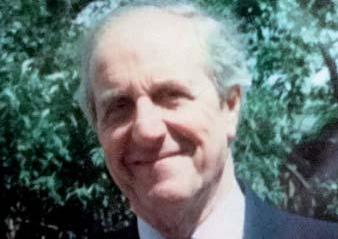
Allan came to RGS in 1936 and was evacuated with the school to Penrith at the outbreak of the war. His adventures as a young man, cycling and walking in the Lake District marked the beginning of a lifelong relationship with the area, where he also met his future wife Pamela.
He joined the Royal Artillery in 1943 and spent time with the 1st Mountain Regiment before serving in the Royal Indian Artillery (45-47) in the Punjab region, rising to lieutenant. He greatly appreciated his time in India –he learnt Urdu and was exposed to skiing for the first time in the Himalayas.
On his return to Britain, he studied Modern and Medieval Languages at St John’s College, Cambridge (BA 1949, MA 1954). He married Pamela in 1951, and they had three children (Diana, Helen and Nicholas).
In 1959 he joined Lowndes Bowring Ltd (later Hill Samuel Group) where he remained, and became director as it grew into a major Lloyds broking company, until his retirement in 1985. He was an underwriting member of Lloyds 1976–1996. He was recognised with the Bain Prize for Foreign Languages, ACII (1951), FCIB (1975), FinstD (1982). He was joint author of London Insurance Institute Advanced Study Group Report:
Atomic Energy and Insurance (54-57). courses in Geology, Topography and IT. He became a dry-slope ski instructor and was active in the Footpath Preservation Society. Between 198796 he served as a general commissioner of income tax (Walton).
He was an active member of the Old Novocastrians’ Association and organised regular reunions for those evacuated to Penrith during the war. He returned to Penrith for the final years of his life, and passed away peacefully with his family at his side. He is survived by his wife Pamela, his daughter Diana, his son Nicholas, five grandchildren and five great-grandchildren.
By Henry Smith
Michael Trevor Shaw (44-50)
Born 12 March 1933, died 4 June 2017 aged 84
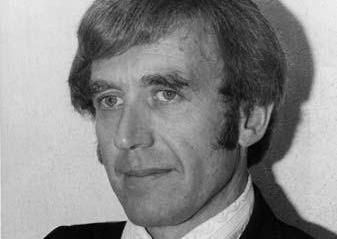
Michael qualified at Durham University in 1957 and practiced general medicine in Newcastle until 1967. In 1968, seeking to increase his medical range, he moved to Edinburgh to complete a Diploma in Child Health (DCH). Having developed an interest in cancer, Michael undertook an oncology fellowship in 1969 at Charing Cross, London. Under the auspices of KD Bagshawe, he wrote his MD thesis on Chemotherapy in Patients with Trophoblastic Tumors.
In 1971, Michael moved his family to the US where he held professorships at the universities of Oklahoma, New Mexico and Yale, focusing on research of haematological cancers. He also maintained private oncology practices in New Mexico and Massachusetts. He retired from medicine in 2008.
Michael held diverse interests and hobbies, including travel, plant taxonomy and personal fitness.
He died at his home in Northern California, aged 84, after a protracted illness. He is survived by his second wife Melinda, daughters Gabrielle, Victoria and Kathryn (of his previous marriage to Linda), six grandchildren and four great-grandchildren.
By Melinda K Shaw
Harry Cawood (54-60)
Born 22 November 1942, died 25 January 2017, aged 74

Born in a Jesmond nursing home, elder twin to his late brother John(54-61), and younger brother of Charmian, Harry used to sneak out of bed and sit on the stairs to hear Friday Night is Music Nightas his parents listened to the radio.
Harry began playing by ear on the family piano and then began violin studies with Mr Hood, a keen musician and carpenter and also received help and encouragment from Mr Jack Wolstenholme (48-75), RGS Head of Music. Such was his progress that he gained a place in the National Youth Orchestra of Great Britain and won further distinction by being appointed leader of that orchestra.
In addition to music, Harry enjoyed playing tennis and his left-handed swinging serve was much feared by his opponents.
Winning a Scholarship to the Royal College of Music he was asked to lead the Directors Quartet and enjoyed gigs with a number of London orchestras including the London Symphony. Reluctantly persuaded to attend a London audition with Max Rostal of the Hochschule Cologne, he was offered and accepted a German government Scholarship and the first lesson in the class was, “This is how to hold the violin.” Summers were spent playing with Max Jaffa and pianist, Jack Byfield and their Palm Court Orchestra in Scarborough.
Harry’s first ‘proper’ orchestral job was with the Bournemouth Symphony. He formed a string quartet with his first wife Mary, and two members of the orchestra, which prospered after being appointed to the first Residency in Britain at Lancaster University.
The Vegh Quartet visited the university and Sandor Vegh invited Harry to return to Salzburg for further tuition and subsequently appointed him as his assistant Professor at the Mozarteum so impressed was he by Harry’s teaching skill and technique.
Still searching for his ideal musical position, Harry crossed the Atlantic to lead the San Francisco Opera Orchestra for two seasons, and to Victoria British Columbia, teaching at the Conservatoire, playing recitals and leading the orchestra. Fortunate to meet and be influenced by great performers and teachers including Rostropovitch, Milstein, Galamian and pianist Leonard Pennario he returned, alone, to Salzburg and then back to London.
After a time freelancing with the English Chamber Orchestra he moved to Edinburgh as co-leader of the Scottish Chamber Orchestra. There he met and courted Elizabeth who he married in 1982.
Following a short tenure as guest leader of Liverpool Philharmonic, Harry was appointed to the University of Natal in Durban, South Africa to teach, play recitals and join the Guarneri Piano Trio with Alfredo and Isabella Stengel of I Musici. After two years, and feeling increasingly uncomfortable with the political situation, Harry reluctantly parted company with his Italian colleagues.
Determined to avoid London he began working in Belfast and became affiliated with St. Malachy’s College. It was there that the teaching bug really grabbed hold of him. Proceeding to his home town of Newcastle he briefly took up an appointment as co-leader of Northern Sinfonia whilst building a class of students. He also enjoyed forming a quartet with members of the orchestra.
An invitation to adjudicate in Cardiff led to a 20-year relocation to Wales and in the rural idyll of a Login valley, Harry was able to indulge in his love of gardening; growing sweet peas, vegetables and salads and making friends with all manner of local wildlife.
Harry and Elizabeth decided to return to Belfast in summer 2014 for what Harry referred to as, “The autumn years”. There he enjoyed two and a half years of semi-retirement, continuing to teach a handful of pupils and particularly relishing his time spent coaching a string quartet of very talented medics.
An emergency admission to hospital in January led to the discovery of a brain tumour. Harry succumbed to pneumonia while waiting in hospital for further tests. There was no funeral as he had donated his body to science at Queen’s University Belfast. Instead, his family, friends and students, past and present, remembered him with a celebration of his life at the Merchant Hotel in Belfast in April.
A keepsake booklet contained numerous messages of condolence and gratitude from past students, many of whom have progressed to successful musical careers thanks to Harry’s exceptional skill and enthusiasm as a teacher, combined with his inspirational joy in, and love of, the violin and music. A memorial concert took place in Cardiff on 30 September.
Daughter, Charmian and twin grandsons, Felix and Herbie as well as daughter Harriet, with grandson Theo, live in Oxford.
By Elizabeth Cawood , Charmian and Scott Green (52-63)

John Scott was brought up in Hexham and it was from there in1951 that he won a free Scholarship to the RGS, which in those days had an annual intake of about 100 to the Senior School. He and I started there in September of that year, both in Stowell. John was a big, strong lad and good at sports; as well as being an excellent swimmer he excelled at the school’s two main sports, rugby and cricket. In the Sixth Form he was on both first teams and was awarded his Colours in both sports. At rugby he was a prop in the forwards and at cricket he was an opening fast bowler, being selected for the prestigious Cambridge tour in the summer of 1958. He had the distinction of being made a Prefect. He subsequently played rugby for Tynedale Cricket Club. In the Fifth Form, when we had to make up our minds between arts and science, John opted for science and this led to him attending Glasgow University where he studied Veterinary Medicine for five years. He learned his profession as a vet in South West Scotland before becoming a partner in the Hexham practice of Pickerings, at which firm he spent his career. He was
Tynedale Rugby Club and cricket for a lifelong member and sometime official of Tynedale RFC but when he could no longer stagger out onto the rugby field he took up golf and excelled in that as well. John was also occasionally(!) to be found in the Albert Edward Club in Hexham, a watering hole frequented by the gentlemen of the shire.
John was well-liked and very popular, both at school and in his adult life, and gave many fine parties at his big, detached villa in Hexham. He was also in demand as a dinner guest and enjoyed fine dining.
John’s health deteriorated in the last couple of years or so of his life and he spent his final few months in a nursing home. He leaves a widow and adult children.
By the late Fred Godson (51-58)
Jeffrey ‘Jeff’ S Howles (45-48)
Born 12 May 1930, died 6 September 2016, aged 86
Jeff, whose death was reported in Issue 99, was the first ON rowing Blue, the Oxford VIII in 1953. This was the more surprising as he had not rowed at school, indeed I believe that rowing only started again in 1948, the year he left, having been suspended since 1939. He played cricket at school, and was in the school XI in 1947 and 1948, though he didn’t do himself justice. He was also in the boxing team. After going down from Oxford he forged a very successful banking career in the US before retiring to Herefordshire. I was sad to hear of his death, as he was a very friendly and amiable man.
Before coming to the RGS he had been a chorister at Durham Cathederal.
By Bryan Stevens (44-49)
Howard HH Baker (77-12) born 1954, died 24 September 2017, aged 63.
William M Darling CBE DL (45-51) born 1934, died 12 July 2017, aged 83.
Nigel J Dodds (67-77) born 1958, died 13 September 2017, aged 59.
Fred Godson (51-58) born 1940, died 7 October 2017, aged 77.
David Grant (48-54) born 1938, died 20 August 2017, aged 79.
Harry Issac Hitman (91-98) born 1979, died 2 June 2017, aged 37.
Robert ‘Bob’ Hollingsworth (3339) born 1923, died 4 August 2017, aged 94.
Richard Holloway (36-43) born 1925, died 30 September 2017, aged 92.
Alan Kirby (33-41), born 1924, died 11 December 2015, aged 91.
John ‘Brian’ Oglethrope (48-55) born 1937, died 28 March 2017, aged 79.
Alan K Purvis (48-56) born 1938, died 30 June 2017, aged 79.
Ian V Stemson (28-38) born 1920, died 7 October 2017, aged 97.
Donald F Stephenson MBE (32-40) born 1922, died 8 May 2017, aged 95.
Corrections (Issue 100)
Page 3. Mr Simon Barker should have been Dr Simon Barker, and Page 21. ‘Hepple’ was incorrectly spelt and should have been ‘Heppell’.
ONA Diary dates
Pre-Match Dinner for Ex-Rugby Players and Rugby Staff
Friday 29 December, 7 for 7.30pm
Novos RFC, Sutherland Park
Prices: £25 students; £30 for non-students.
contact c.ward@rgs.newcastle. sch.uk directly.
John Elders Memorial Match
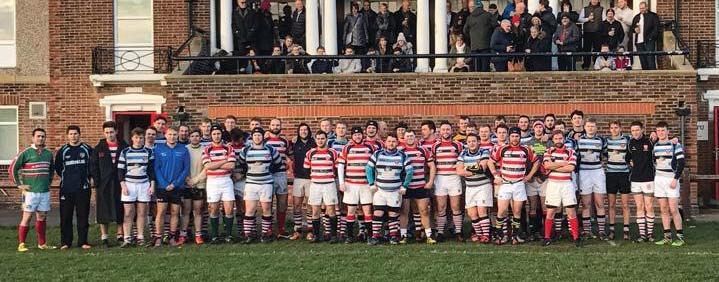
Saturday 30 December, kick-off 2pm, bar open from 12 noon - 11pm
Novos v ONA, Novos RFC, Sutherland Park
For further information please
Please come along to support the teams and enjoy what is sure to be an enjoyable festive afternoon’s entertainment.
ONA Merchandise
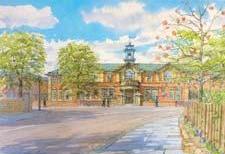



To order from our range of merchandise, please send a cheque payable to ONA, confirming your delivery address and contact details. For further details please email: ona@rgs.newcastle.sch.uk
Bow Tie 100% pure silk, self-tie and ready made options available £29
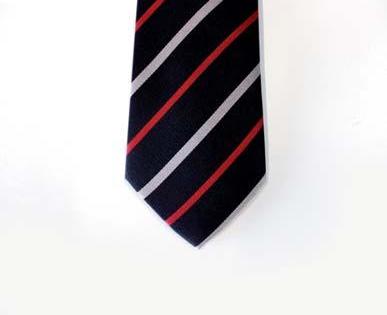
Tie 100% pure silk, slip-stitched, fully lined £29 Polyester ties are also available. Limited Edition Prints 480x330mm unframed £60 or 2 for £100



Scarf 100% double thickness wool £35

